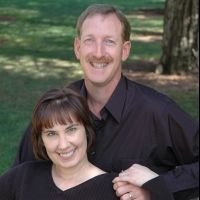My daughter, Kristen, bought me a book for Christmas. It's called Touch and it's written by Pastor Rudy Rasmus. He pastors a church Called St. John's in downtown Houston. Side note, Beyonce grew up in this church and wrote a little note on the back cover.
I'm only on chapter 6, but thought I would share a few of my highlights.
The ministry of St. John's exposes fear, hurt, and doubt in each of us, and it lavishes love to heal these wounds.
The more I experienced the touch of His love, kindness, forgiveness, and strength, the more revolution God caused in my heart. I began to see myself as an advocate for the marginalized around me: drug addicts, homeless people, gays and lesbians, gang members, and misfits.
One day, a well-dressed lady who was a corporate professional came to me with a complaint, "Rudy," she said with a tone of disgust, "things just don't seem to be improving around here. What are you going to do about all of those people?"
I believe people have built-in radar to detect the level of acceptance we offer them.
ENGAGE BEFORE JUDGING
LOVE BEFORE LEAVING SOMEONE'S PRESENCE
PERSONAL PAIN IS FERTILE GROUND TO LEARN TO LOVE
REAL LOVE REQUIRES DEFENDING THE HELPLESS
(About a lady he knew in the neighborhood) She looked the facts squarely in the eye, and then she stepped up, spoke the truth, and took action. I've tried to follow her example by being brutally honest about people and circumstances, and then defending the rights of the helpless and hopeless against exclusion, racism, and all forms of injustice.
What can we expect when we choose love over fear in relating to people? We can expect most people to repay our love with trust and loyalty, but we can also expect a few to try to take advantage of our kindness, and a few of them will despise us. That's the range of people's responses to Jesus. Why should their response to us be any different?
And the reason for our limited ability to love might be that we live in fear and try to protect ourselves from being hurt again.
C.S. Lewis said, "Pain is God's megaphone." He uses it to get our attention. God uses our pain to deepen our dependence on Him so we move past fear and we learn to live in love. When we experience God's love, we can lower our guard of self-protection, and we can really love people.
According to Robert Linthicum in his book, Empowering the Poor, ministries can be characterized by their attitude toward "the least of these." Some churches have ministries "to" needy communities, some minister "in" those communities, and some minister "with" needy people.
Ministering "to" needy people is keeping the at arm's length. A suburban church may take old clothes to a shelter and drop them off. They expect the effort will help in some way, but they have very little contact with homeless people or abused women and children served by the shelter.
Many churches minister "in" their communities. The building is found in the town or city or countryside, but they see people outside the church as "them" instead of "us." They see their church as a haven from the injustice ad heartache outside the church, and they develop a fortress mentality. If people come to them, the church will try to find them some help. But if they don't come, that's fine too.
Instead of the church being a fortress to protect us from threatening people, the church is a family that cares for all of its people, the saved and the lost, the rich and the poor, the clean and the smelly. Churches that minister "with" their communities live in love, not in fear.
That's a good chunk to chew on for today, three chapters in fact. The next chapter deals with our fears. Tune in again!
Blessings on this sunny Friday.
Subscribe to:
Post Comments (Atom)

No comments:
Post a Comment